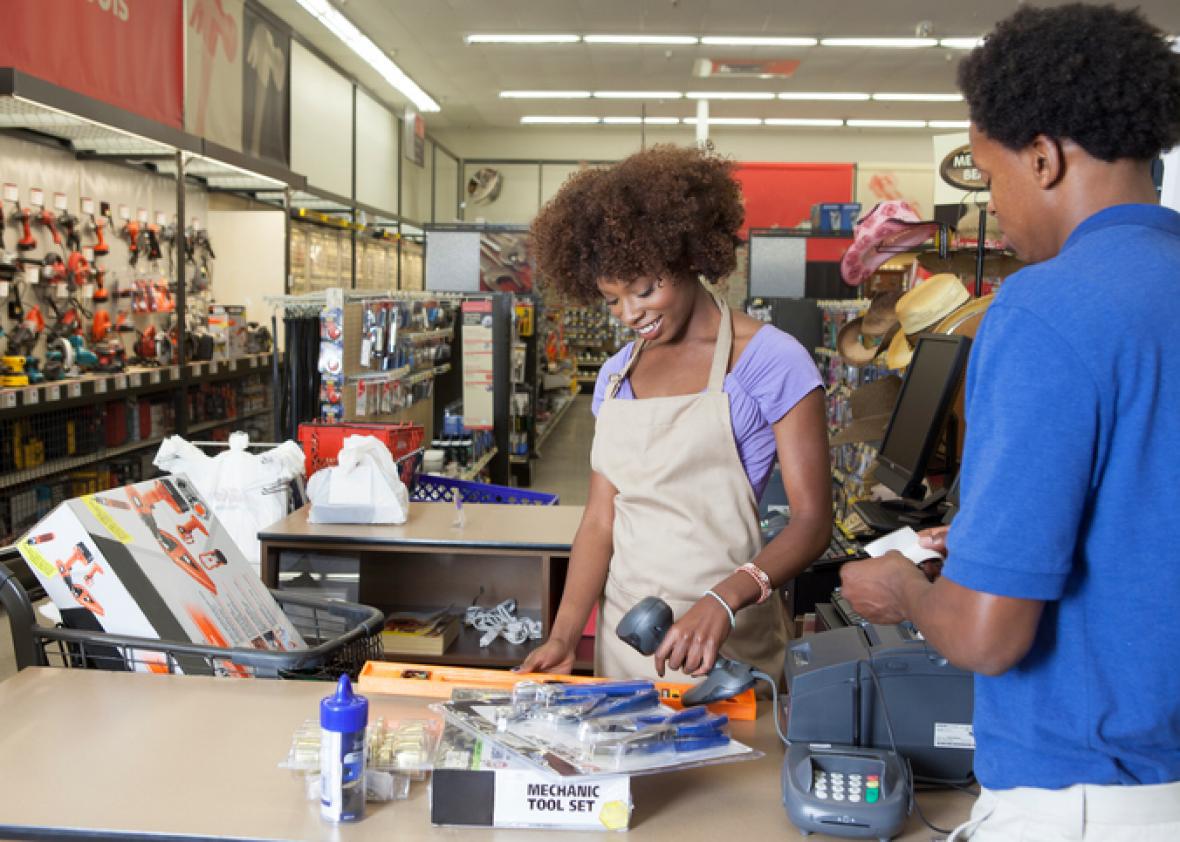If Newt Gingrich’s philosophy of crime statistics has taught America anything, it’s that feelings are more important than facts. Violent crime may be way down in the U.S., but if people don’t feel like it is—perhaps due to some potent blend of racist fearmongering and cable news coverage—Republicans will find a way to capitalize on their anxiety.
The reverse is true, too: If a demagogue brags about his made-up accomplishments enough, people will start to believe they’re true. Donald Trump is covering up his administration’s lack of achievement with stupid lies and barking about creating jobs through deals he had no part in. But at least two overlapping groups of Americans believe that the economy is getting better thanks to Trump’s diligent and capable work: old men and Republicans! Three out of four men over age 49 think the economy is doing well, as do 93 percent of Republican men and 61 percent of Republican women. Large majorities of those groups give Trump credit for whatever good stuff the economy has been up to lately.
Throughout history, men have almost always been more likely than women to think the economy is doing great. We can blame the gender wage gap and women’s larger role in purchasing consumer goods for that. According to a new poll from the Wall Street Journal and NBC News, the gender gap in economic outlook is wider now than it’s been in 40 years. Three-quarters of men surveyed said they thought the economy has improved since the election, while less than half of women said the same.
Gender differences in party makeup account for some of this 16-point gender gap, but not all of it. Republican women who were surveyed were four times as likely as their male counterparts to say the economy was not improving, and Democratic women were nearly 20 points more likely than their male peers to say so. In fact, a slim majority of Democratic men say the economy has improved since the election, and 14 percent of Democratic men say Trump deserves credit for that improvement. Since Trump’s election, men have gotten more confident in the country’s economy, while women have gotten less so.
The Wall Street Journal reports that, since the election, there has been no objective change in the labor market that has given men a better deal than women. Unemployment rates among men and women are nearly identical, and job growth for women has actually been somewhat better than it has been for men.
In other words, these economy feelings aren’t tethered to facts—they’re more usefully understood as proxies for general senses of security and well-being. A recent Pew Research Center survey found that men’s confidence in the country’s outlook has skyrocketed since Trump’s election, while Democratic women’s has plummeted and Republican women’s has risen slightly. Women do not feel represented and served by the current slate of policymakers charting America’s future, so their interpretation of the state of the economy is grimmer. It probably doesn’t help that they’re about to be priced out of their health care, either.
Trump and his cabinet have focused their rah-rah economy rhetoric on the jobs of white men: coal mining and manufacturing. Working-class women and people of color are far more likely to do care work, which is grossly underpaid, or hold jobs in the retail sector, which is hemorrhaging a much greater stream of jobs than the coal industry. As my colleague Jamelle Bouie wrote in April, to compare Trump’s devotion to the tiny, already-doomed coal industry with his virtually nonexistent response to the retail industry’s rapid decline is to reveal the racist and sexist biases at the heart of his economic plan. Whether the economy as a whole is up or down, women are watching the very real devaluation of their work. The damage is both economic and emotional.
